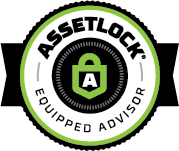In today’s volatile market environment, investors seeking safety inside your portfolio must consider how any investment fits into their investment strategy. All investments have their place in retirement planning, but only if suitable and a part of an overall financial strategy using multiple types of investments, insurance products, and accounts. While investing is not without risk, there are critical elements to consider when building a portfolio:
Measuring your risk
Determining how much ‘risk and reward’ you are willing to take. While stocks provide more rewards in their return, they have a level of risk that must be considered. With the addition of insurance products, such as annuities, that are not market sensitive an investor may mitigate risk.
Diversifying your investments
There is no formula for finding the top performers in sectors, regions, or asset classes. Therefore, it makes sense to not concentrate all investments in one area. Diversification should include differing asset classes from various regions in many types of business and uncorrelated insurance products to avoid the peaks and valleys that each can bring.
Understanding what you invest in
If you do not understand what the investment is and how it works, do not add it to your portfolio. Although, it makes sense to invest in what you are familiar with. We advise caution in having too much of the same type of investment. Ask your advisor about anything you are unsure about or for additional research on the investments you are considering
Creating a portfolio of ‘safe investments’ is crucial. Especially for those nearing retirement that has limited time to recover from a loss. If you are within ten years of retirement, your investments are at a critical stage to continue to gain value and avoid loss. Without thinking through the dynamics of gains and losses, investors leave themselves open to market risk that could prematurely deplete their retirement assets.
One way that investors avoid loss is by including annuities in their retirement portfolio. Annuities are a contract with an insurance company to provide investors with a guaranteed stream of income in retirement.
Understand the Risks
Investors should fully understand the risks associated with each investment, and there are pros and cons to each. Due diligence of investigating each investment and for any annuity should take precedence before purchasing one for your retirement portfolio. If you have questions regarding how to have safety inside your portfolio, contact us today.
Disclosure: Guarantees are backed by the financial strength and claims-paying ability of the issuing insurance company. Diversification does not ensure a profit or protect against loss. An annuity is intended to be a long-term, tax-deferred retirement vehicle. Earnings are taxable as ordinary income when distributed, and if withdrawn before age 59½, may be subject to a 10% federal tax penalty. If the annuity will fund an IRA or other tax qualified plan, the tax deferral feature offers no additional value. Qualified distributions from a Roth IRA are generally excluded from gross income, but taxes and penalties may apply to non-qualified distributions. Consult a tax professional for specific information.
1192312b-0520
As a retirement income specialist and 38-year veteran of the financial services industry, August H. Velten understands what his clients need in order to enjoy a comfortable retirement. Augie is a former instructor for the Life Underwriter Training Council. He once occupied the legislative seat for the Maine Association of Life Insurers. At August H Velten & Associates, we know that it is your retirement, and you should have control over it. We offer our experience and knowledge to help you design a custom strategy for financial independence. Contact us today to schedule an introductory meeting!
Comments are closed.



